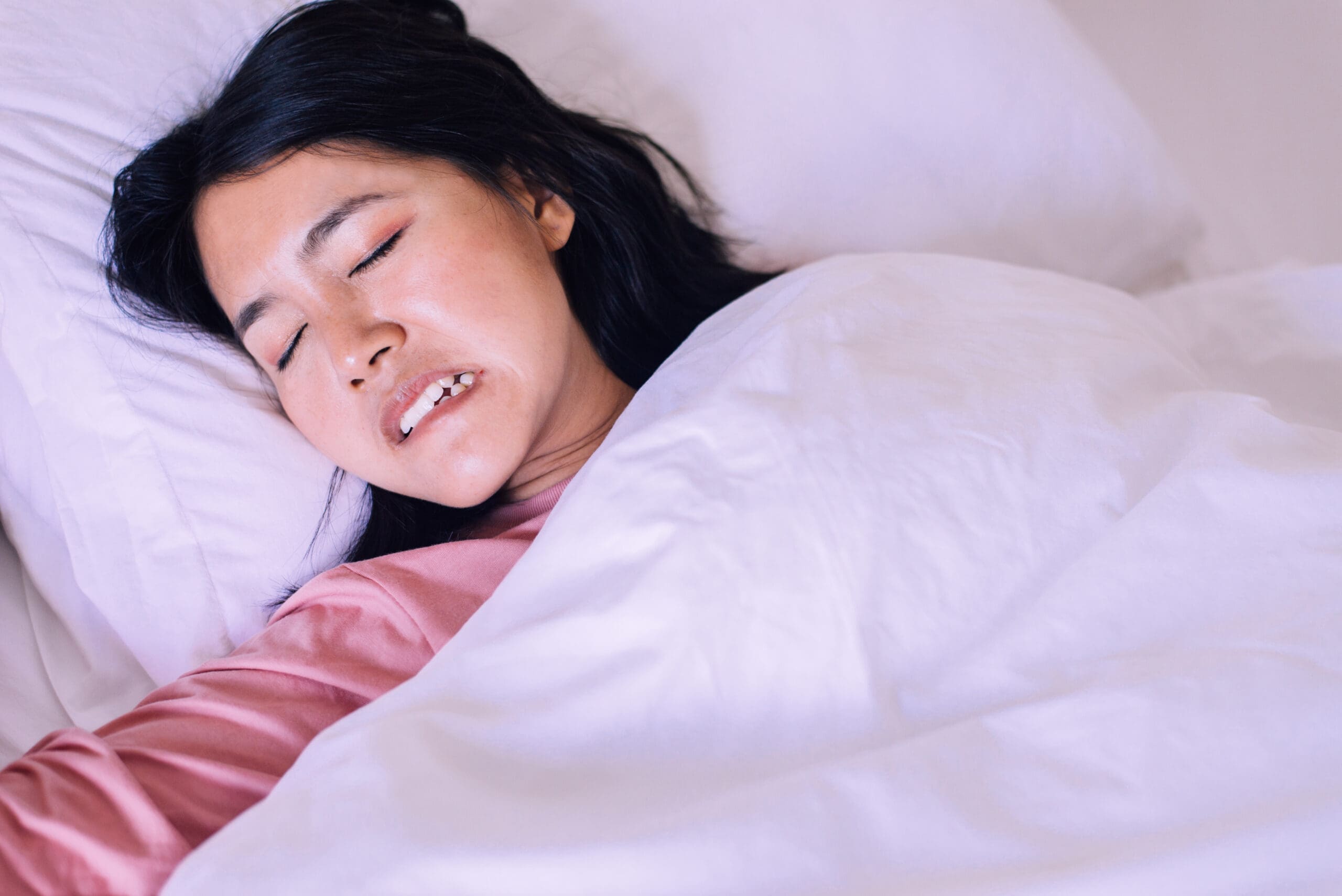Bruxism occurs when a person unintentionally clenches or grinds their teeth. While it mostly happens during sleep it can effect some people while they’re awake. The causes aren’t completely understood.
Bruxism could be a side effect of poor teeth alignment, a medical condition, or some medications. Or it may be related to stress or a sleep disorder. Teeth grinding can lead to headaches or pain around the jaw or ear. With bruxism, you might also sometimes find you have difficulty opening your mouth. Open up.
Ahh.
Hmm. Grinding your teeth can also cause chipped enamel, or worn, loosened, or cracked teeth. If something isn’t done to stop the damage from it, it can lead to jaw muscle or joint problems, even loss of teeth. In many cases, when bruxism is relatively mild, no treatment is required. In other cases, it can come and go, particularly with stress.
Adopting relaxation techniques may help. So can wearing a mouth guard or splint while sleeping. By making some changes, bruxism can generally be managed.





